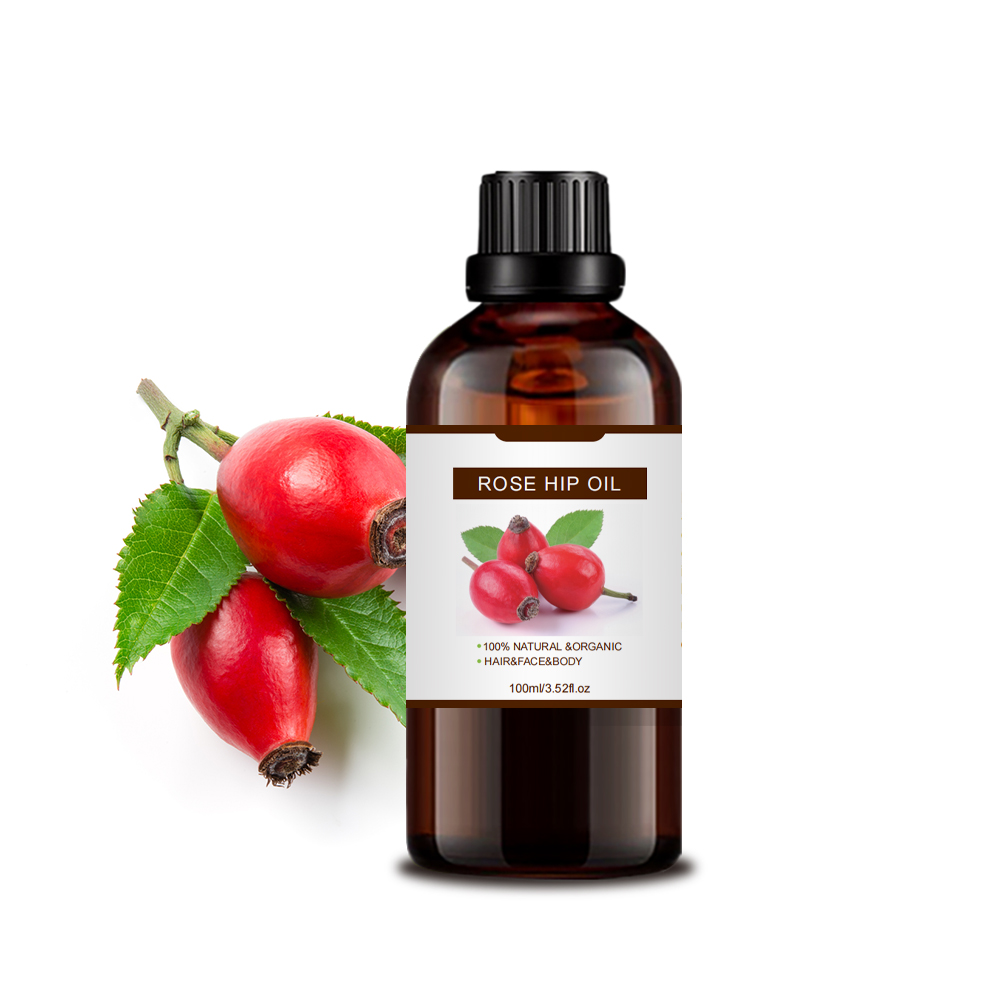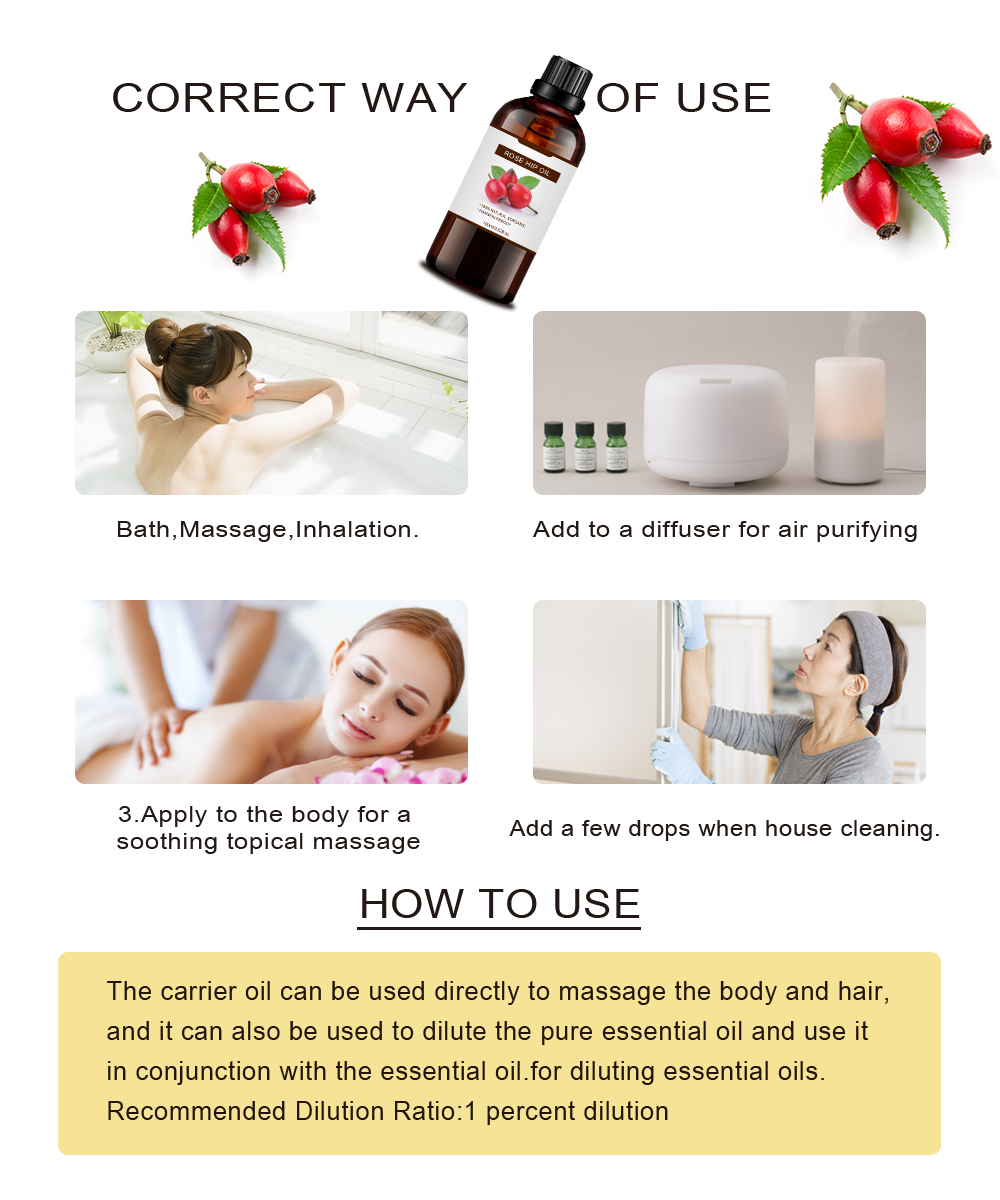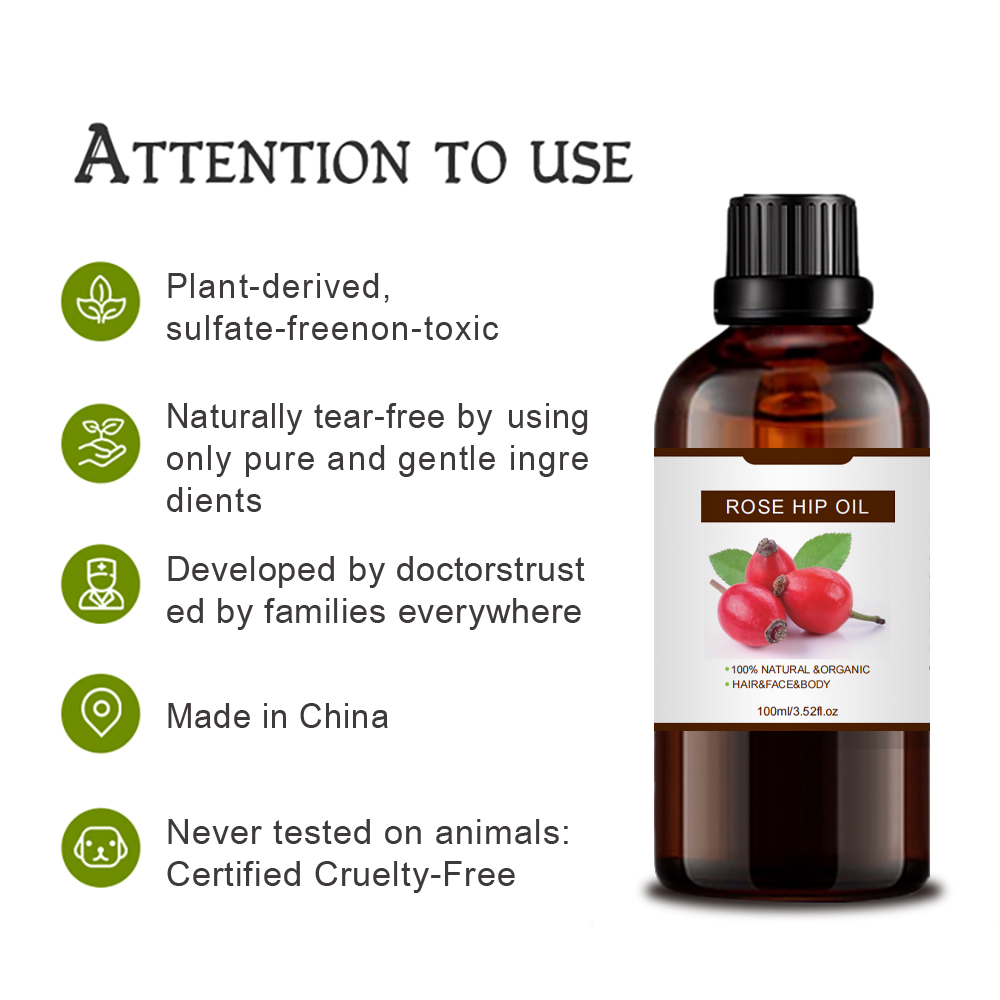What Is Rosehip Oil?
Rose oil is made from rose petals while rosehip oil, also called rosehip seed oil, comes from the seeds of rose hips. Rose hips are the fruit left behind after a plant has flowered and dropped its petals. Rosehip oil is harvested from the seeds of rose bushes predominately grown in Chile, and it’s full of vitamins, antioxidants and fatty acids that are known to correct dark spots and hydrate dry, itchy skin, all while reducing scars and fine lines.
By using an organic cold-press extraction process, the oil is separated from the hips and seeds.
For facial skin care, rosehip oil offers several benefits when applied externally. It protects the skin and increases cell turnover because it contains beta-carotene (a form of vitamin A) and vitamins C and E, which are all antioxidants that help fight free radicals.
Rosehip oil’s healing properties are due to its chemical structure. As noted, it’s rich in healthy fats, but more specifically oleic, palmitic, linoleic and gamma linolenic acid.
Rosehip oil contains polyunsaturated fatty acids (vitamin F), which when absorbed through the skin converts to prostaglandins (PGE). PGEs are excellent for skin care because they are involved in cellular membrane and tissue regeneration.
It is also one of the richest plant sources of vitamin C, which is another reason why rosehip oil is such a great product for fine lines and overall skin care.
Benefits for Skin & More
1. Anti-Aging Properties
Rosehip oil has significant anti-aging benefits for your face. Super light and non-greasy, this oil’s skin care benefits come from its high antioxidants and ability to penetrate into deeper layers of the skin, where it can improve moisture levels and reduce visible signs of aging.
Collagen production naturally slows down as we age, but thanks to the high levels of vitamin C in rose hips, this is an oil that can actually help stimulate collagen production in the skin. In fact, a clinical study published in 2015 reveals that 60 days of topical vitamin C treatment was “highly efficient as a rejuvenation therapy, inducing significant collagen synthesis in all age groups with minimal side effects.”
For those who are seeking to avoid chemicals and Botox, rosehip oil may be perfect because of its skin-rejuvenating properties of vitamins C and A and lycopene. This makes adding it into your skin care routine a safer, organic solution to repair the skin’s surface and restore elasticity.
2. Protection from Age Spots
The UV rays of the sun can damage the skin, resulting in age spots and hyperpigmentation on the face. The antioxidants found in rosehip oil, especially the combination of vitamins C and E, can help combat free radicals that cause sun damage.
Research suggests that these antioxidants can actually reduce the overproduction of pigment in skin, which is exactly what leads to uneven tone and age spots in the first place. It also helps get these antioxidants internally by including them in your diet.
Drinking organic rosehip tea, which you can find at health food stores, is a great, easy way to do this.
This oil is also deeply moisturizing and aids in removing redness and irritation. These properties also make rosehip oil a possible treatment for rosacea when used as a cold-pressed oil, cream or rosehip-based skin care product.
3. Helps with Stretch Marks and Reduces Acne Scarring
The cold-pressed fats found in rosehip oil can help get rid of scars and reduce the appearance of stretch marks by promoting skin regeneration. When applied topically, the fats act as emollients, helping soften the skin while also increasing hydration.
Studies indicate that this skin care oil may also help with cases of eczema thanks to its emollient status, which means it can provide a protective barrier to the skin while also smoothing out flakiness. The oil can also help reduce dry scalp and itchiness that are often caused by chemicals in most store-bought shampoos.
4. Boosts the Immune System
Rose hips are one of the best plant sources of vitamin C, which helps treat infections and boost immune function. The University of Maryland database points out that rose hips can even be used as a vitamin C supplement.
Fresh rose hips, rose hip tea or a rose hip supplement are all great options for keeping the immune system strong.
Besides being an antioxidant, vitamin C is responsible for collagen production in the body, which is an important element in the structure of bones and muscles. Reports indicate that the important nutrient also aids in the proper absorption of iron that produces red blood cells.
5. Reduces Inflammation and Helps Arthritis
People suffering from arthritis can benefit from using rose hips internally in addition to externally. The Arthritis Foundation reports that rose hips powder is a rich source of vitamin C, and it seems to reduce arthritis-associated inflammation by inhibiting the production of inflammatory enzymes and proteins.
What about topical use of rosehip oil for arthritis? There isn’t recent research on this approach, but traditionally, a rose petal infusion was often added to bath water for people suffering from arthritis or rheumatism to relieve symptoms.
You may find that adding a little rosehip oil to your bath water or applying it to areas of inflammation helps with this issue.
How to Use
Wondering how to use rosehip oil for your skin care routine and more? Start by purchasing a pure, organic product that’s made by a trusted company. You’ll find rosehip oil products in pure oil, cream, powder, tea and capsule forms.
Keep in mind that rosehip oil is delicate and can easily go rancid, so it’s important to take great care of it. Oftentimes, vitamin E oil is added to improve shelf life. Keeping it in the refrigerator or stored in a cool, dark location can help prevent rancidity.
Though it’s more expensive, cold-pressed rosehip oils are the best products because they haven’t been altered by heat and therefore retain more nutrients.
Since rosehip oil classifies as a dry oil, it absorbs quickly into the skin. You can apply the oil directly to the face using gentle, massaging motions or use it in numerous skin care recipes.
Post time: Jul-26-2023





